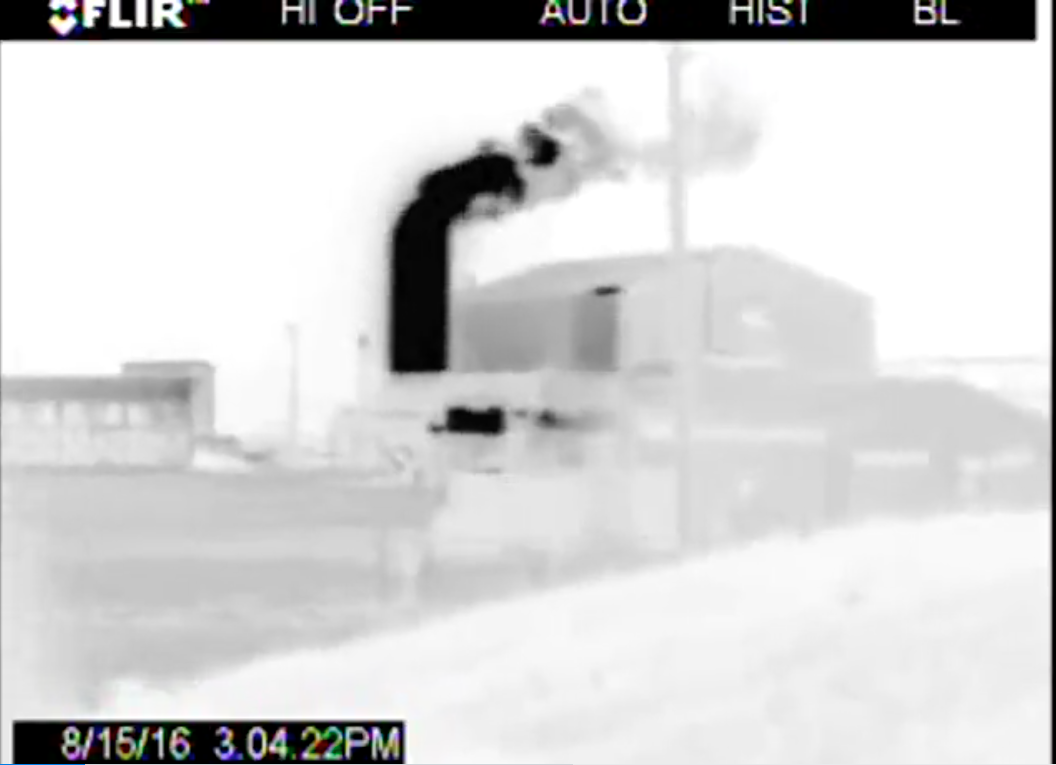New, groundbreaking research from a group of scientists shows B.C.’s estimates of methane pollution from oil and gas activity in the province’s Peace region are wildly underestimated.
Using infrared cameras and gas detection instruments at over a thousand oil and gas sites during a three-year period, scientists from the David Suzuki Foundation in partnership with St. Francis Xavier University recorded fugitive methane emissions being released from facilities directly into the atmosphere on a perpetual basis.
The study estimates methane pollution from industry in B.C. is at least 2.5 times higher than the B.C. government reports. Methane is a potent greenhouse gas with the warming potential 84 times that of carbon dioxide over a 20 year period.
Scientists Find #Methane Pollution from BC’s Oil and Gas Sector 2.5 Times What BC GovReports #fracking #bcpoli https://t.co/hsmgJ6uX98
— DeSmog Canada (@DeSmogCanada) April 26, 2017
B.C. reports 78,000 tonnes of fugitive methane emissions occur each year, yet researchers found 111,800 tonnes of fugitive emissions are being released from production in the Montney basin alone — where roughly 55 per cent of the province’s oil and gas activity is occurring.
“This is the climate pollution equivalent of burning more than 4.5 million tonnes of coal, or putting more than two million cars on the road,” John Werring, Foundation senior science and policy advisor and co-author of the study said.
Methane is a potent greenhouse gas with the warming potential 84 times that of carbon dioxide over a 20 year period.

Fugitive Methane Exempt from B.C.’s Carbon Tax
The research, the most thorough ground-based measurements of fugitive methane emissions ever undertaken in Canada, is undergoing final review in the peer-reviewed scientific journal Atmospheric Chemistry and Physics Discussions.
“The finding of our peer-reviewed research is groundbreaking. It shows the true magnitude of B.C.’s methane pollution problem is much bigger than previously reported by industry and government,” Ian Bruce, Foundation director of science and policy said.
“Now that we know the extent of the problem, the David Suzuki Foundation is calling on B.C.’s next government to make it a priority to get this pollution problem under control and ensure industry is responsible for being part of the solution.”
Although technology exists to identify and stop methane leaks and routine flaring, methane emissions are exempt from B.C.’s carbon tax.
According to Werring, there is little incentive for companies to address the problem.
“The reason why these things are not being fixed is simply to save money,’ he told Global News.
Next B.C. Government Must ‘Establish Accountability’ for Methane Polluters
The foundation challenged B.C. to “establish accountability and proper oversight” of the sector in a set of formal recommendations addressed to B.C.’s next government, decided upon in the May 9th provincial election.
The recommendations include committing to eliminate methane pollution from the sector by 2030, applying the carbon tax to methane emissions, requiring monthly leak detection and repair and increasing enforcement capacity across the province.
The foundation also recommends the province prioritize the hiring and training of First Nations for monitoring and enforcement positions.
“The good news is cutting methane pollution from the oil and gas sector is one of the cheapest and most effective ways to address climate change,” Werring said.
The B.C. Green Party said it will enforce the carbon tax for methane polluters, “to provide significant incentive to conduct enhanced maintenance.”
The B.C. NDP leader John Horgan said “heavy polluters that are polluting through these fugitive emissions should pay a higher price.”
The B.C. Liberals said they have a goal of reducing fugitive and vented emissions 45 per cent for facilities built before 2015.
Werring said methane pollution should be eliminated from oil and gas activities by 2030.
“The next B.C. government must establish accountability and proper oversight,” he said.
“This should include the use of existing full methane capture technologies, mandatory pollution detection and repair regulations, and the application of the B.C. carbon tax to methane pollution.”
Image: Methane emissions from a Spectra Energy compressor station. Photo: David Suzuki Foundation
Subscribe to our newsletter
Stay up to date with DeSmog news and alerts







